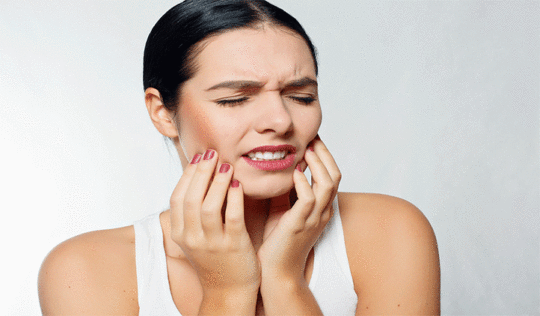
Does a sip of iced coffee or spoonful of hot soup make your teeth hurt? Has brushing become a painful experience? If so, you may have sensitive teeth.
Sensitive teeth are often a result of lost enamel. Enamel is the hard, outer surface layer that protects your teeth from decay. When enamel wears away, nerve endings that are receptive to pain are exposed. When this occurs, teeth are exceptionally reactive to hot, cold and acidic food and drinks.
Speak to your dentist about what you are experiencing. It is likely that he or she will recommend some simple changes to your daily oral health care routine. These steps may help you find relief from your sensitive teeth.
Don’t Brush So Hard. Using a hard-bristled toothbrush and applying it with too much force can wear down that protective layer of enamel. Switch to a toothbrush with softer bristles. And be sure to use a toothpaste with fluoride. Fluoride is absorbed into the enamel and helps repair it.
Stop Grinding Your Teeth. Over time, clenching and grinding your teeth (also known as bruxism) can wear away teeth enamel. If you often wake up with a sore jaw or dull headache, you may be grinding your teeth in your sleep and not even know it. See your dentist to be fitted for a nightguard.
Avoid Acidic Food and Drinks. If you have weakened enamel, foods such as tomato sauce, grapefruit and lemon can cause pain. Carbonated drinks and wine are also highly acidic and can exacerbate enamel loss. If you must drink an acidic beverage, try using a straw to limit contact with teeth.
Take A Break From Whitening. Overuse of certain whitening products may be the cause of your tooth sensitivity. This type of sensitivity is usually temporary as it is caused when the hydrogen peroxide soaks through the enamel. Whitening toothpastes may be a helpful alternative because they only work on surface stains.



